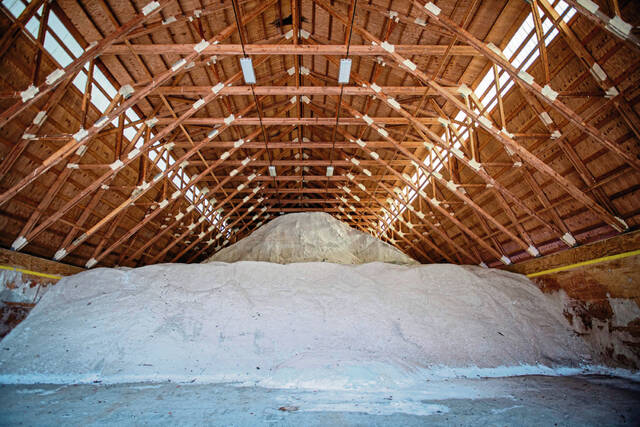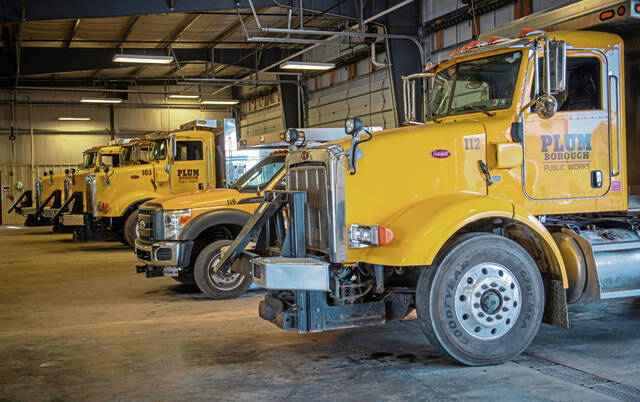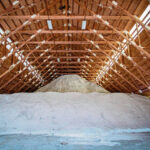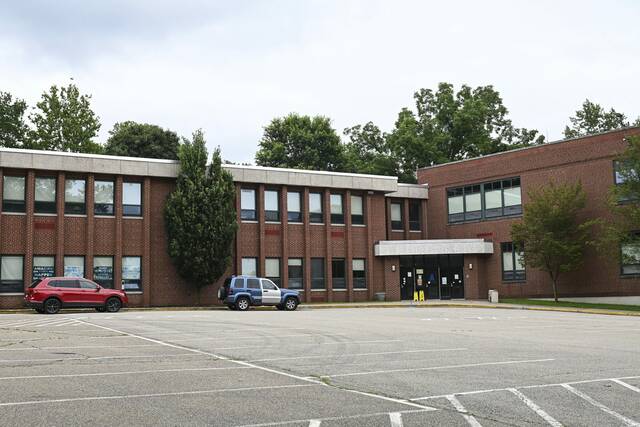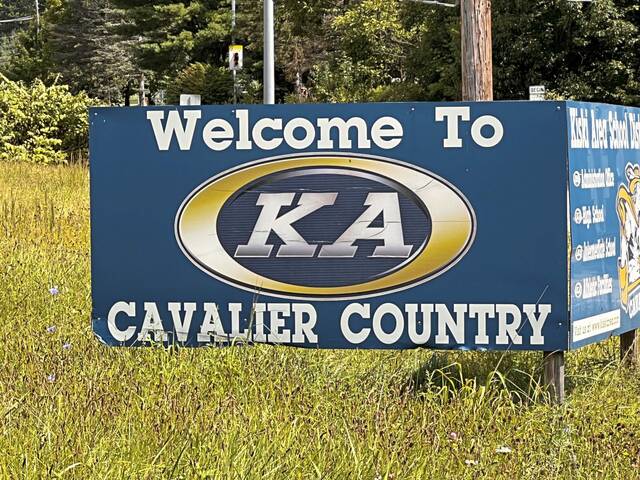Long before he jumps in his salt truck, Unity Supervisor Mike O’Barto says, the township has to consider winter road maintenance and road salt acquisition.
O’Barto is among 21 plowmen, including two other township supervisors, who work to clear the 165 miles of roads in Unity, which is one of the largest municipalities in the region. He said the township takes pride in the “best snow removal in Westmoreland County.”
“It’s nothing for a driver to put 50-some miles on their vehicle, their truck, during a run,” he said.
To make that removal possible, however, Unity Public Works must begin considering how to equip its winter crews in the midst of its warm weather operations, O’Barto said.
In a typical winter, the supervisor said, crews use about 4,500 tons of salt. But with ice and “nuisance snows” consistently laying down flakes on Unity roads, O’Barto said the township used closer to 10,000 tons last year.
That much salt — about the same tonnage as the Eiffel Tower — set Unity back about $800,000, he said.
To avoid added costs or scrambling for salt come winter, municipalities usually offer suppliers an estimate of their salt needs in June or July.
Unity buys its bulk salt through Pennsylvania’s COSTARS Cooperative Purchasing Program, which is often used by public and nonprofit organizations to connect with bidders for larger contracts.
But Plum Assistant Manager DJ Housley said his borough buys its salt through a council of governments, known as a COG.
Instead of each municipality negotiating individually with suppliers, regional COGs allow local governments more leverage and often better bulk prices.
Typically, municipalities submit an estimate for the amount of salt they’ll require to their COGs. Most contracts offer governments some leeway for their salt use — typically 80% to 120% of the submitted estimate — before suppliers tack on added costs.
Plum committed to purchase its salt — about 3,000 tons — with the South Hills Area COG, despite its distance from the region.
According to the American Journal of Transportation, about 25% of rock salt used domestically is imported, much of it from Canada and Mexico.
That’s sparked fears that import tariffs could raise salt prices for local governments.
But so far, Housley said, it hasn’t proved to be a problem.
“We’re not feeling any pressure if a tariff were suddenly imposed on Canada,” he said. “We’re still getting our salt for this price.”
That price is set at about $88 per ton, which is a 75-cent increase per ton over last year. In Unity, O’Barto said his township is paying about the same price — in fact, a small decrease — as last year.
As Allegheny County’s third-largest municipality by area, Plum drivers dump between 7,000 and 8,000 tons of salt on about 100 miles of roads each winter, Housley said.
Road crews run in two shifts to avoid driver exhaustion and overtime costs for the borough.
Housley said he’s not sure what to expect this winter, but his public works crews operate under the mantra of “hope for the best, prepare for the worst.”
Last year was hardly “the worst.”
Plum’s salt storage building currently sit two-thirds full with leftover tons from last winter.
Still, Housley said, the borough snagged about 3,000 additional tons to fill out its supply before winter.
Anthony Zelina, director of public works in Shaler, is responsible for the township’s 125 to 150 miles of roads.
This summer, he ordered about 7,000 tons of salt through the North Hills Council of Governments.
He said that’s what the township — complete with its 16 drivers and four auxiliaries — normally requires to make it through the winter.
Zelina, who has headed his department since 2013, said he has seen salt prices increase little by little over the years, but prices are likely stabilized by COG contracts.
According to the National Ocean and Atmospheric Administration, precipitation in Western Pennsylvania and much of the Midwest may be above average this winter.
Zelina said it’s hard to put much faith in long-term projections, however.
But in Harrison, Public Works Superintendent Randy Martinka said he’s betting on more snow this winter. After three relatively mild years, he said, the weather will have to swing the other way eventually.
With about 600 tons left over from last year, Martinka estimated he’ll need around 1,000 more to get through this year. Like Plum, Harrison also bought its salt through the South Hills Area COG in June this year.
Martinka said Harrison typically requires 1,700 tons of salt for its roughly 100 miles of roads.
“We try to keep it right where the average is,” he said. “That’s all we can go by because Mother Nature never tells you what she’s going to do.”




